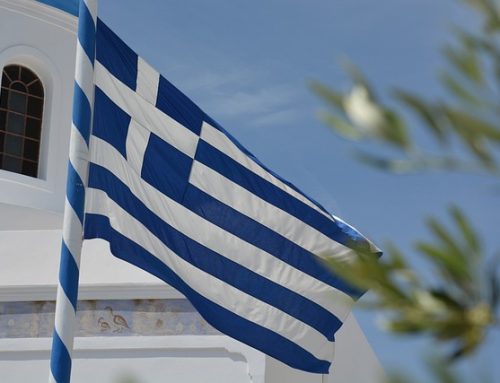24.06.2021
Sponsorship expenditures, donations and aids made by corporations will be taken into account as a deduction in the determination of the corporate tax base within the framework of the explanations below.
In the event that donations and aids are not made in cash, the cost value or registered value of the donated goods or rights, and if this value is not available, the value to be determined by the valuation commissions according to the provisions of the Tax Procedure Law shall be taken as basis.
Since the sponsorship expenditures, donations and aids made by the corporations are considered as expenses in the records on the date of the expenditure or donation and aid, it must be deducted from the corporate tax base, provided that it is shown separately on the declaration, within the framework of the explanations in this section, in case the said expenditures, donations and aids are taken into account as non-deductible expenses in the determination of the corporate income and the corporate income is sufficient.
– Sponsorship expenditures
All for amateur sports branches and 50% for professional sports branches can be deducted from the declared corporate income in the determination of the corporate tax base determined in accordance with the aforementioned laws of the sponsorship expenditures within the scope of the Law No. 3289 on the Organization and Duties of the General Directorate of Youth and Sports and the Law No. 3813 on the Establishment and Duties of the Turkish Football Federation.
Sponsorship expenditures are expenses that are not directly related to the commercial gain or cannot be measured, and their social purpose is prominent and differs from the advertising expenditures that are directly related to the commercial gain.
Provided that the name of the sponsoring institution is mentioned; the following expenses will be considered as sponsorship expenses:
- Field, hall or facility rental fees for official sports organizations,
- Subsistence, travel and accommodation expenses of the athletes,
- The cost of sports equipment,
- Expenditures in kind and in cash for sports facilities to be deemed appropriate by the General Directorate of Youth and Sports,
- Reference fees that will enable the transfer of athletes,
- Premium payments in cash and in kind to athletes or sportsmen according to the results of sports competitions
With the help of written or electronic signals on the sportswear or sports equipment of the athletes or other interested persons in the sports fields, expenditures that provide direct commercial benefit and aim to promote the corporation, such as placing emblems, brands, names and similar signs that will enable the promotion of the corporation virtually, will be considered as advertising expenditures.
In addition, it is possible to separate the expenditures made due to the transactions that include the purpose of advertising and promotion in addition to the sponsorship activities as advertising and sponsorship expenditures, provided that they are specified in the contract and are in accordance with the precedent. For example, expenditures related to advertising activities can be separated from the reference fee, provided that they are specified in the contract and are in line with their precedents, and will be considered as advertising expenses, if an institution transfers an athlete to a club by paying a reference fee, and also uses it in advertisements for the promotion of the company or its products.
The procedures and principles regarding the sponsorship application are regulated in the General Directorate of Youth and Sports Sponsorship Regulation published in the Official Gazette dated 16/6/2004 and numbered 25494. Accordingly, real and legal persons can be sponsor to federations, youth and sports clubs or athletes within the scope of the procedures and principles specified in the aforementioned Regulation regarding sports facilities and activities.
According to the Article 8 of the regulation, a written contract must be made between the parties – one of them is sponsor and the other one is receiving sponsorship services- which includes the rights and obligations of both parties. The person, institution or organization receiving the sponsorship service is authorized to make a contract with the sponsors. The information to be included in the contract to be made is specified in the mentioned article.
As can be seen from the examination of articles 4 and 13 of the regulation, there is no special regulation that the supports given in kind or in cash to the persons, institutions and organizations receiving the sponsorship service must be bound to the documents prepared in accordance with the Tax Procedure Law.
In Article 4 of the aforementioned Regulation, “document” is the document regarding sponsorship and advertising services and transactions. “Cash support” is the monetary payment made by the sponsor to the person receiving sponsorship service. “In-kind support” is defined as expenditure related to the purchase of goods and services made by the sponsor in connection with the sponsorship business.
In the 12th article of the regulation, it is stated that the sponsorship fee incurred in connection with the service and work subject to the sponsorship can be spent by the sponsor himself or it can be deposited into the account of the person receiving sponsorship service, and that the provisions of the legislation to which the person receiving sponsorship service is subject will be applied for the expenditures related to this amount, which is recorded as income by the person receiving sponsorship service.
If a cash support is provided by the sponsors to the persons, institutions and organizations receiving the sponsorship service and this support is deposited into a bank account opened on behalf of the service recipients, the document or receipt to be given by the banks for the amounts deposited to the sponsors must be accepted as the proof of the donation. However, a statement stating that the money has been deposited “for sponsorship purposes” must be included in the bank statement or receipt.
In case the aforementioned cash support is delivered in cash to the sponsor service recipients, the receipt to be issued by the persons, institutions and organizations receiving the service can be accepted as a supporting document regarding the donation.
On the other hand, if the support is made in kind, not in cash;
- In case the support in kind from the assets of the enterprise is delivered to the persons, institutions and organizations receiving the sponsorship service, it is obligatory to issue an invoice for the delivered values. In the invoice, it is obligatory to include information that cannot be left in doubt regarding the fact that the delivery is for sponsorship purposes and the type, nature and amount of the delivered values. The invoice must be issued on behalf of the service recipients and the back of the invoice must be signed by the service recipients or their legal representatives.
- In case the in-kind values are donated by the taxpayers to those who receive sponsorship services from outside, it is obligatory that the receipt is issued for these values to be received by the service recipients and that the values, type, quantities, number, etc. of the donated assets must be included in the receipt.
In addition, the back side of the invoices issued on behalf of the taxpayers regarding the donated values must be signed by the person or legal representatives who receive the service within the above-mentioned explanations.
However, it is not possible for taxpayers to consider donations or aids made without a receipt as a discount.
Expenditures made in cash or in kind within the scope of the Sponsorship Regulation can be considered as a deduction by corporate taxpayers in the year in which the expenditure is made.
There is no obligation to submit any documents attached to the aforementioned declarations for the reduction of sponsorship expenditures, the scope of which is stated above. Not only real and legal persons cannot be sponsors indefinitely but also they should not have any tax liabilities. Therefore, corporations must apply to the tax office to which they are affiliated, receive a letter stating that they do not have tax debt, and submit a copy of the sponsorship agreement to the relevant tax office in order to become a sponsor.
If sponsors fail to pay their tax liabilities accrued during the sponsored periods, the relevant tax office will immediately notify the Provincial Directorate of Youth and Sports with a letter.
Source: Revenue Administration of Republic of Turkey – Translated by Karen Audit – The rights of this translation belong to KarenAudit and unauthorized use is prohibited.
Legal Notice: The information in this article is intended for information purposes only. It is not intended for professional information purposes specific to a person or an institution. Every institution has different requirements because of its own circumstances even though they bear a resemblance to each other. Consequently, it is your interest to consult on an expert before taking a decision based on information stated in this article and putting into practice. Neither Karen Audit nor related person or institutions are not responsible for any damages or losses that might occur in consequence of the use of the information in this article by private or formal, real or legal person and institutions.






